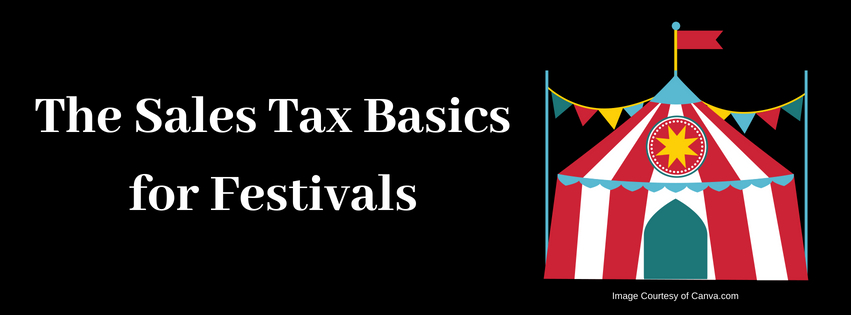Fall is just around the corner, and with the change in season comes harvest festivals. For many small businesses, running an event booth is a great way to sell their wares and spread the word, but festivals can be tricky when it comes to understanding and collecting the appropriate sale tax.
Are you looking to open a vendor table or organize an event yourself? Brush up on your sales tax basics through this article and learn just what you need to operate as a festival seller!
For Vendors
If you’re a vendor selling taxable items, the first thing you should do is apply for a sales tax permit in your home state. If you already have a permit but are opening a booth in a different state, then the next step would be to check that state’s requirements on festival sales tax.
In general, you’ll need to collect the combined sales tax rate of the state, county, district, and city that you are in with each purchase – information that your festival coordinator should have or can be calculated here. Additionally, some states require that you obtain a temporary sales tax permit within that event’s location, on top of your home state seller’s permit, while others like Alaska, Oregon, Delaware, Montana, and New Hampshire don’t require sales tax at all.
For California vendors, whether local or visiting, a California sales tax permit is required along with an additional “sub-permit” for each event your wares are sold at.
For Festival Organizers
As a festival organizer, while the sales tax collection itself is up to the vendor, it’s your responsibility to ensure that your featured sellers are properly informed on the rate and method of that sales tax collection. Often, if a vendor has a question about their sales tax requirements, they will come to you, so be sure that you are prepared to answer all inquiries on the subject.
Just like a vendor, your first step should always be to check state laws for their sales tax policies, while keeping in mind that the collection percentage should be the sum of the state, county, district, and city rates, if the event location has any.
Though rare, some festival organizers are required to collect their own sales tax from admission fees, depending on the state. And while not every state requires organizers to check that their vendors have the proper permits, it certainly is “best practice” as auditors commonly drop in on festivals unannounced to ensure all is up to code.
For organizers of Californian events, however, law does indeed demand that coordinators ensure all vendors are sales tax compliant before allowing them to sell their wares. For more information and a comprehensive permit checklist, click here, but most of all, don’t forget to share that festival spirit!
(Thanks to TaxJar and this article for the information!)
